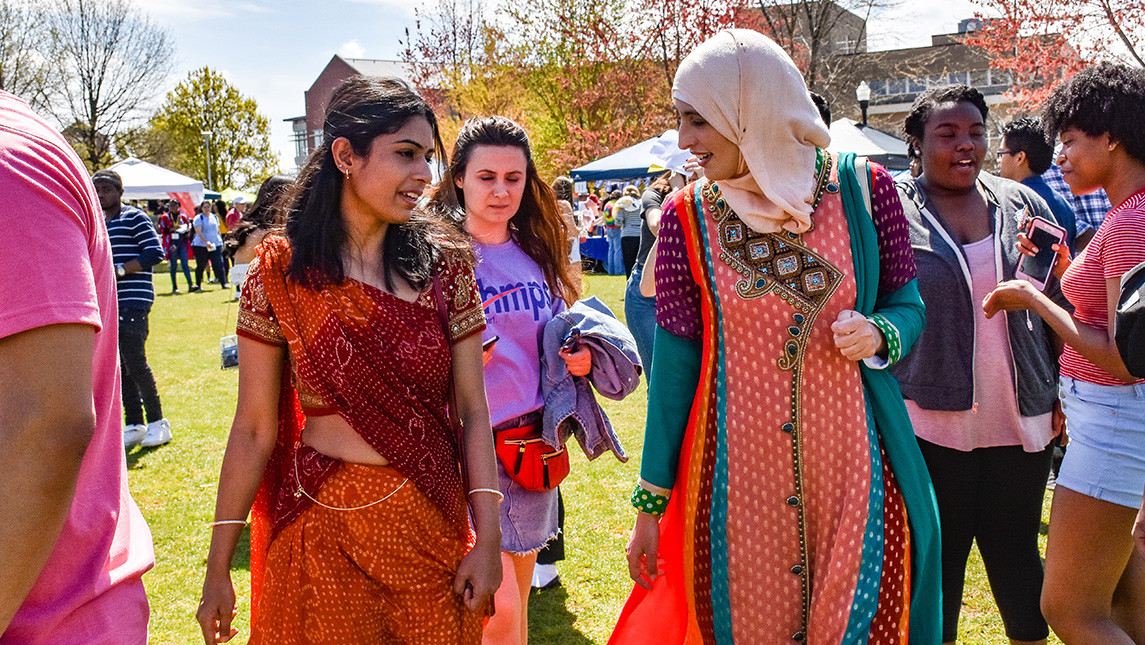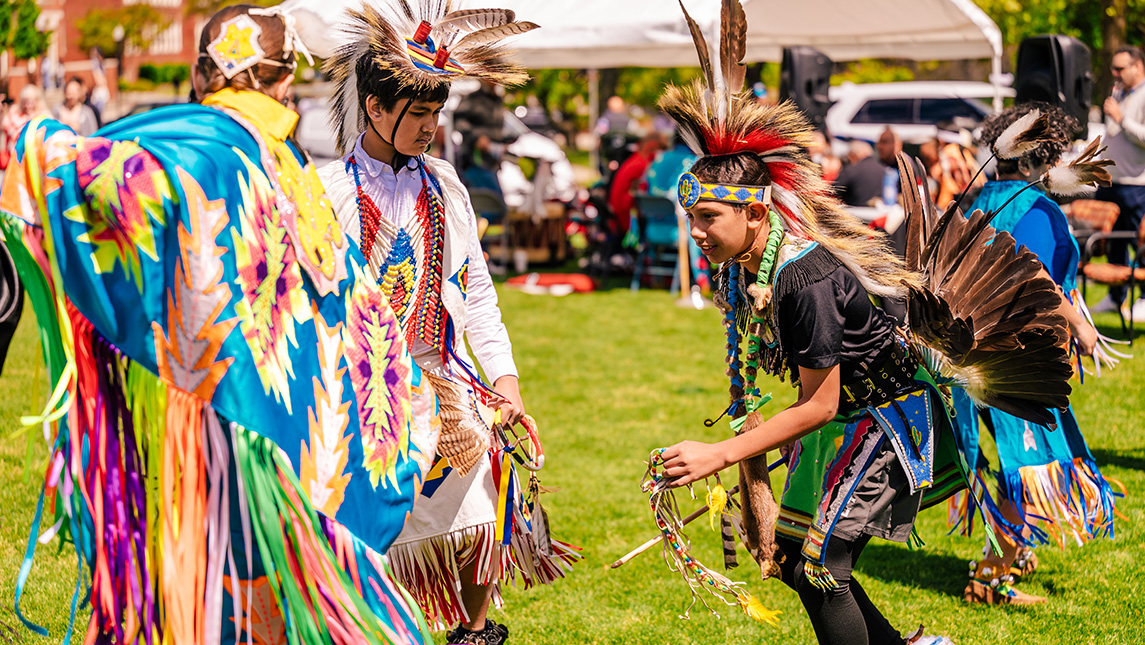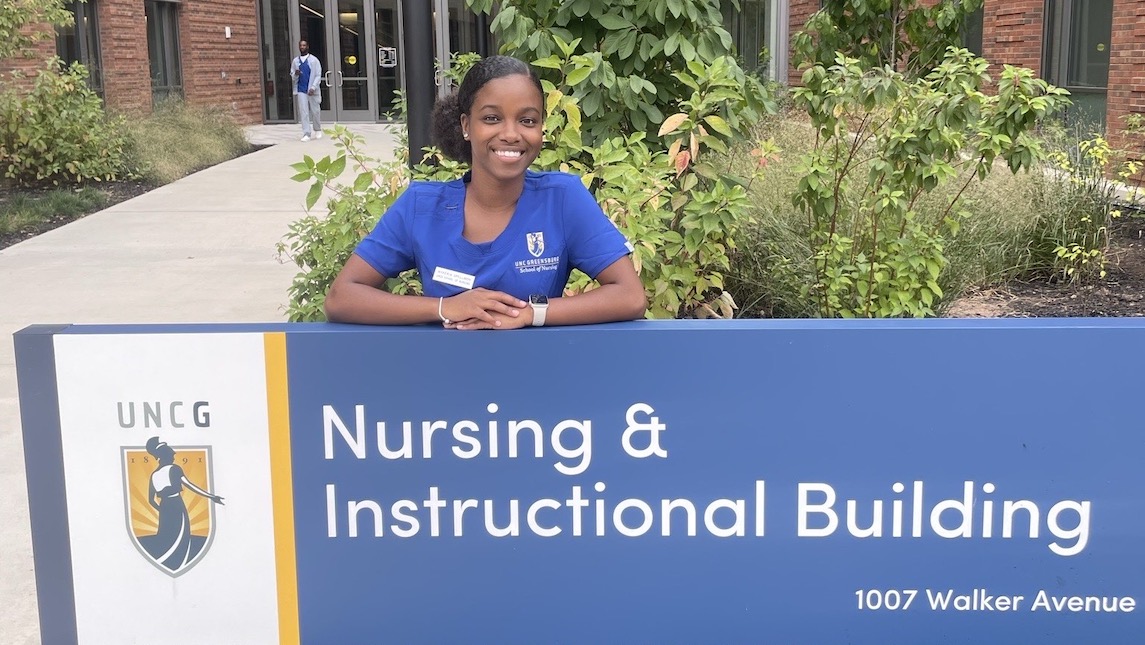The annual spring powwow hosted by UNC Greensboro’s Native American Student Association (NASA) is a draw for people from all around the country. It’s an event that the participants describe as a big family coming together.
Chloe Thompson, a student at UNCG’s Middle College, had two additional reasons to feel excited about April 13’s powwow. The first was that she would be dancing in her own handmade regalia. The second reason was the beautiful weather, as last year’s powwow had to be moved inside due to rain.
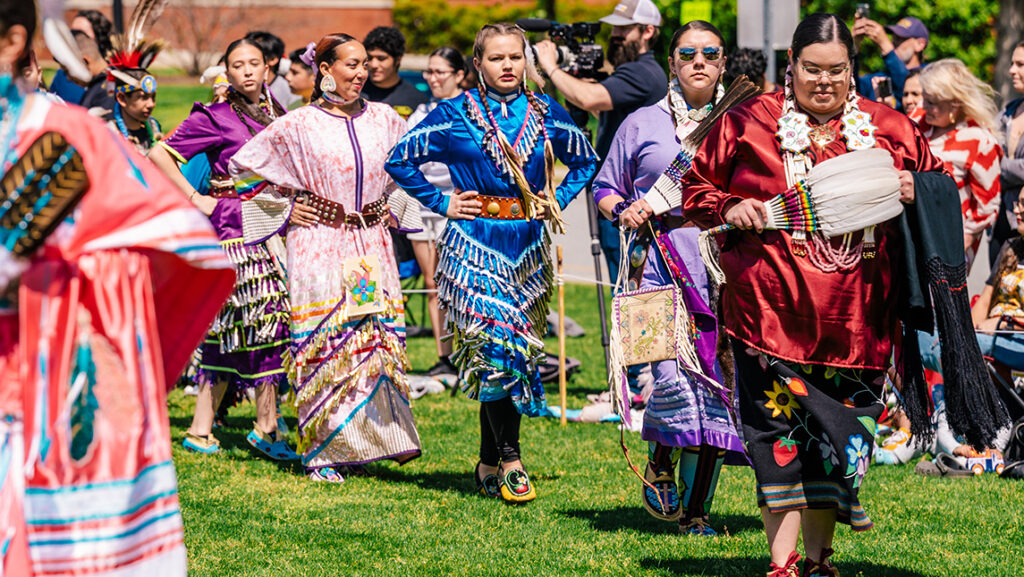

“Last year was the first powwow I was able to participate in,” says Thompson, an Akwesasne Mohawk. “While it was still a really great experience, it’s so much better to have it outside the sun with all these people.”
Century of Recognition, Millennia of Culture
Everything from the dances to the vendors’ wares to the regalia carried special meaning to the Native American participants, reflecting on how far they’ve come and celebrating who they are in the present-day.
The year 2024 marks 100 years since the U.S. passed the Indian Citizenship Act of 1924. Terry Chavis, president of NASA, says it’s important to show one another and non-Native guests how they are thriving.
“This is a very special year for us to say, ‘It’s only been 100 years of citizenship, but we have many millennia of representation here on the land,'” says Chavis, a member of the Lumbee Tribe of North Carolina who is getting his doctorate in educational studies with a concentration in higher education at UNCG.

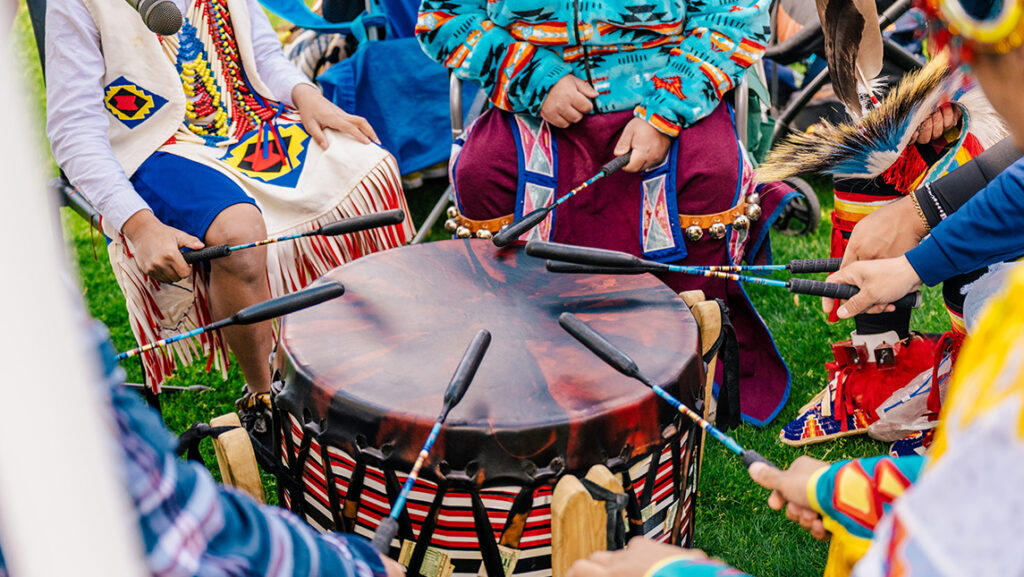
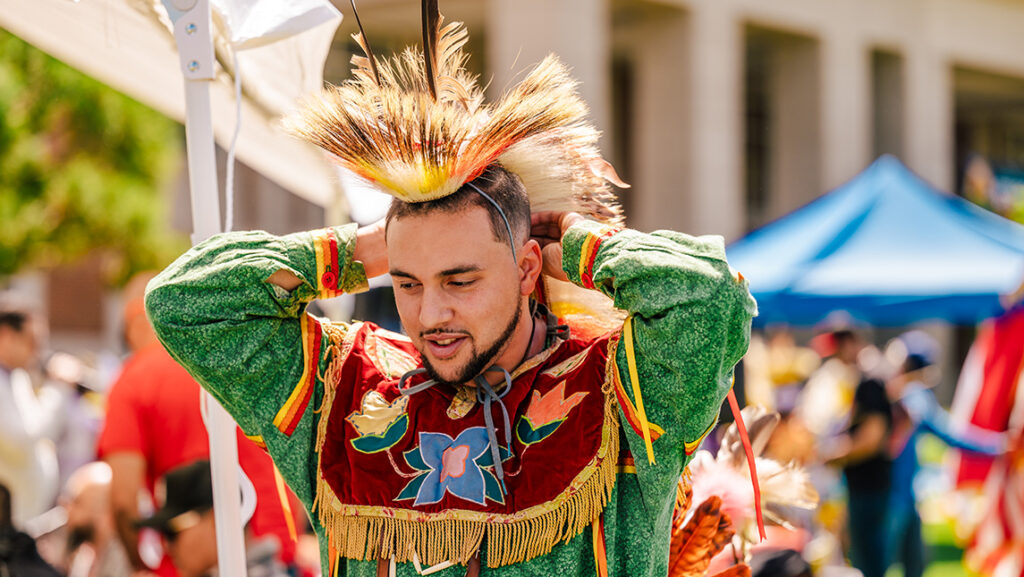
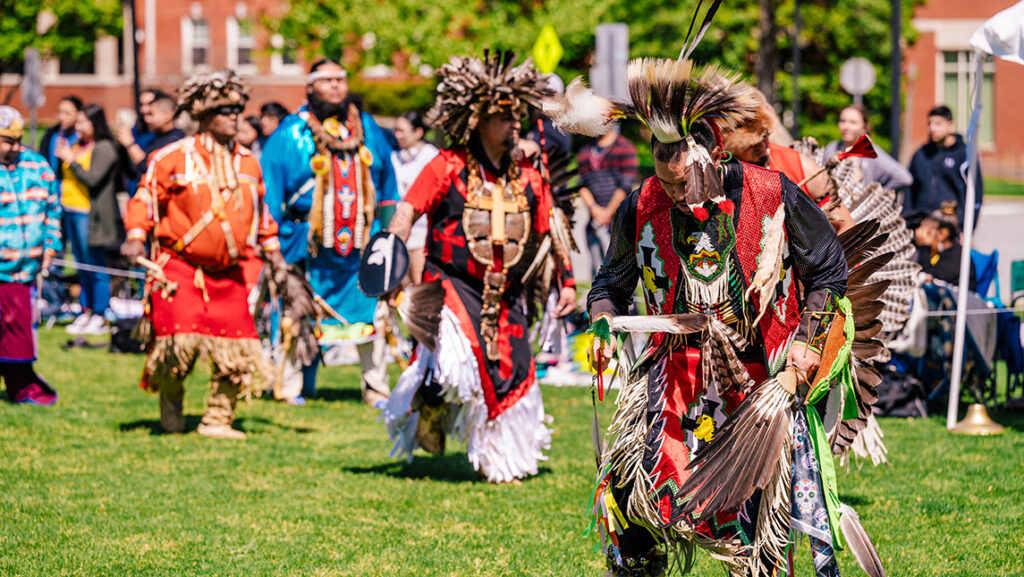
The Grand Entry at the powwow brought the American and North Carolina State flags onto the lawn of UNCG’s Elliott University Center. They held a prayer in the Tuscarora language and recognized Native American veterans. Vendors sold handmade wares such as beads, ribbon shirts, woodwork, blankets, and jewelry.
Erika Reynolds serves as NASA’s cultural advisor while studying for a master of arts in peace and conflict studies. She says there are 7,000 Native members in Guilford County from roughly 125 tribes. Powwow participants represented tribes from across the country.
Everyone Feels Like Family
“We’re all diverse in our cultures, heritage, and languages,” says Reynolds, who is Cherokee, Saura, and Arawak. “But what you’ll notice out here is that all of us are family, even if we’re not blood related.”
Some of the dances encouraged audience participation, while others focused on themes of friendship and relationships. A series of dance specials shone a light on the issues felt by Native Americans today.
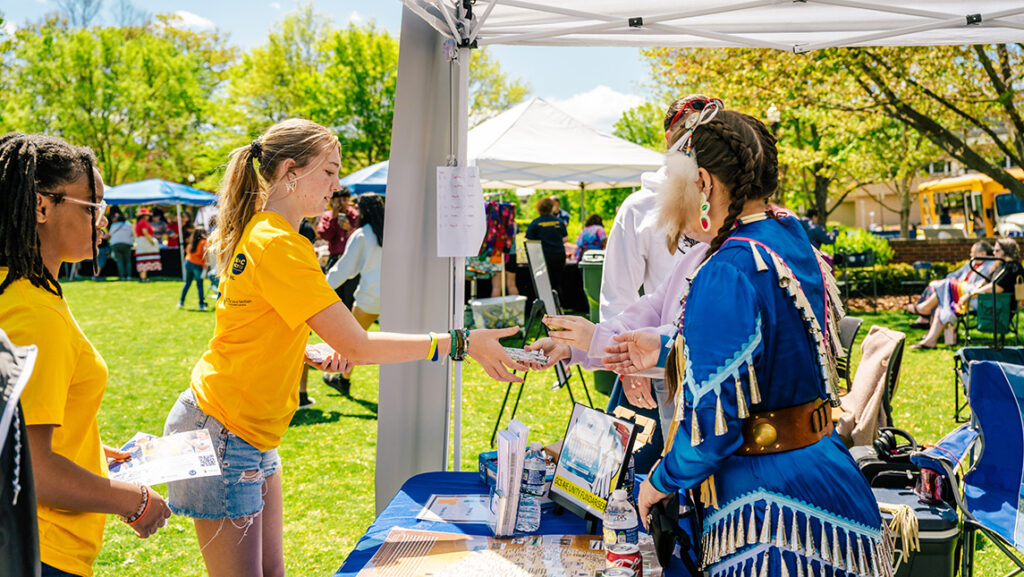
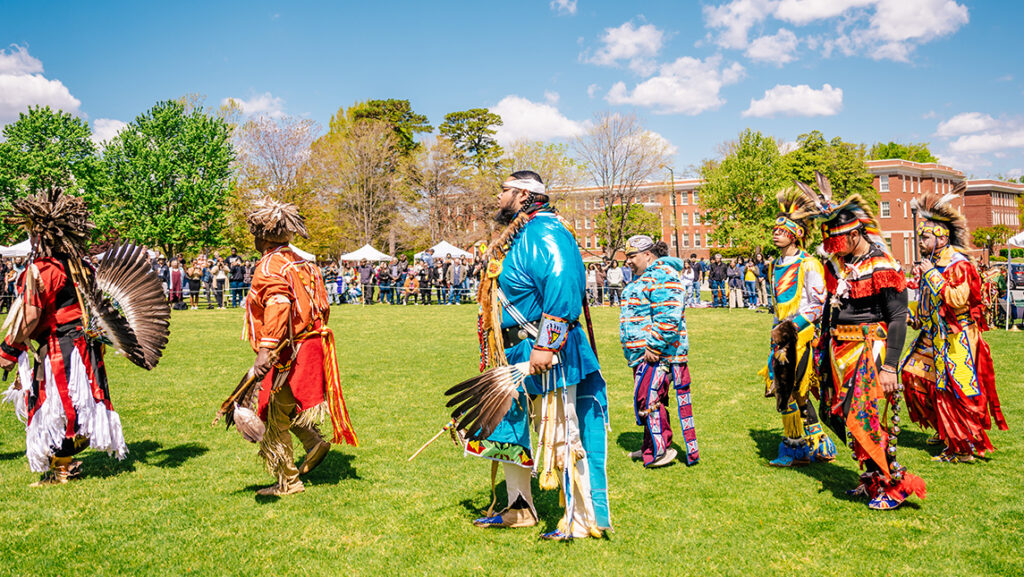
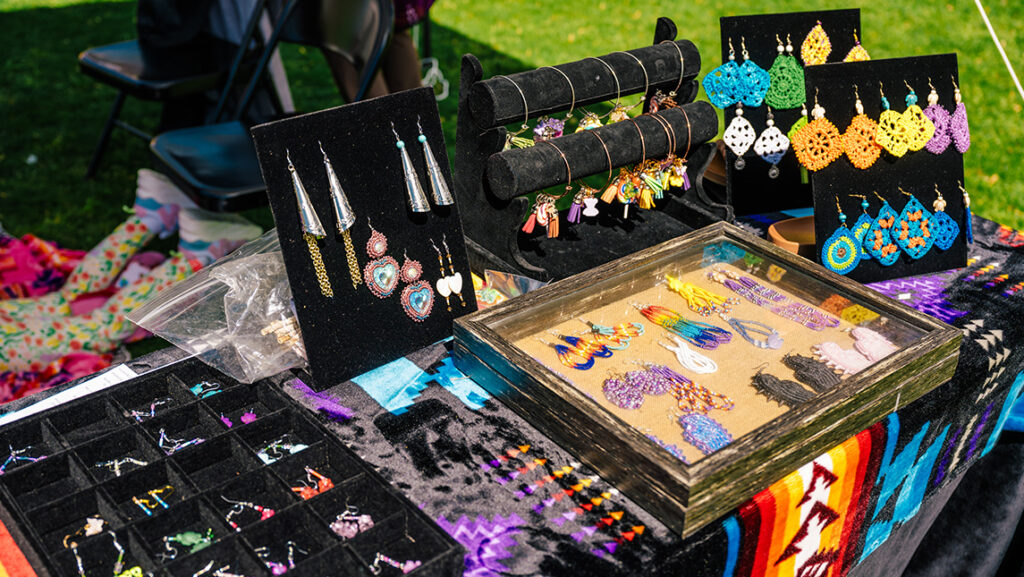
“We have some dance specials that highlight Missing and Murdered Indigenous Women,” says Reynolds. “Every Child Matters gives homage to our folks that went to Indian residential schools and never made it home. Our Little Boy Long Hair special, which celebrates our long hair, is especially for our young men.”
Thompson, who graduates from Middle College this year, was grateful for a place that brought together distinct aspects of herself – her Spartan identity blended with her Mohawk identity. She says whether someone is Native American or not, they had much to gain by going to the powwow.
“Just by talking to people you can learn how many different cultures there are,” says Thompson. “It means a lot to be able to celebrate who I am at the school – where I’m just a student most of the time. Now I get to show that I’m also a Native American, and I’m a part of this really amazing community.”
Story by Janet Imrick, University Communications
Photography by Sean Norona, University Communications
Video by David Lee Row, University Communications
